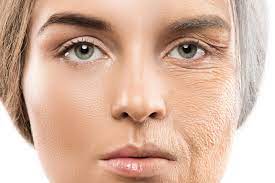
Signs of Premature Aging
Have you ever thought why people love being young and dying to stay young by paying big bucks on skincare and health supplements? It may seem absurd to some but staying young or what people say “to age gracefully” is certainly a big dream and is made possible through science breakthroughs. Plus, it makes a person look good and helps them to live a fulfilling life. However, not everyone has the privilege or chance to have so. Hence, signs of premature ageing might be easy to be noticed. In this DoctorOnCall’s article, we will be probing further on signs of premature ageing.
The human body is made up of cells which grow and work to perform the body function. In each cell, there are structures called telomeres, a section of DNA at the end of the chromosomes. Telomeres contain genetic information that helps the cell to stay young and functional. Since cells divide, part of the telomeres may be lost and naturally become shorter as a person ages. This natural process causes the DNA to become prone to damages. It is called chronological ageing. Thus, a premature ageing means that the biological ageing happens which surpass the chronological ageing.
A biological ageing happens due to few factors including environmental and behavioural such as emotional distress during stressful events. This certainly explains why a person looks older than their actual age. One of the obvious signs of premature ageing can be seen in a person with progeria. Progeria or Hutchinson-Gilford progeria syndrome (HGPS) is a rare genetic condition causing a child to look like a really old person. Needless to say, premature ageing does not necessarily mean a serious problem or need for urgent treatment.
Back to our main focus, what are signs of premature ageing?
1- Drier skin over the years due to less production of sebaceous glands responsible for a moist and hydrated skin.
2- Itchy skin due to dry skin causing the skin barrier to be compromised
3- Fine lines or wrinkles on the skin
4- Sunspots or dark spots due to hyperpigmentation
5- Loose or sagging skin due to loss of collagen producing skin elasticity
6- Bruising or bleeding skin due to weakened blood vessel
7- Visible veins
8- Hair loss
9- Greyish hair
10- Loss of muscle strength
11- Gradual loss of bone density
Since premature ageing can happen to anyone, it is best to know what steps to be taken in order to slow down the ageing process. The biggest culprit of premature ageing is the human lifestyle themselves. Without a doubt, stress certainly is unavoidable in our daily life. Although stress is indeed good for humans to make them productive and successful, excessive stress alongside bad stress management can lead to a sign of premature ageing. This is because chronic or long-term stress itself causes telomerase to be hindered. Telomerase is needed by the body to replenish the lost telomere.
Therefore, learning to manage stress by having a good rest or sleep and practising mindfulness can be a good way to manage that stressful pressure. Eating a balanced nutritional meal is essential for the body to be nourished well as nutrients in the food are able to counterattack the effect of what stress can do. Avoid smoke and excessive consumption of alcohol as it accelerates the ageing process. If you need to be out in the sun, try to limit the skin getting exposed to the sun by wearing sunblock and protective gear such as sunhat, glasses and wearing long-sleeved clothes. Remember to always use moisturiser all day to support its skin barrier.
















